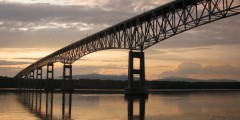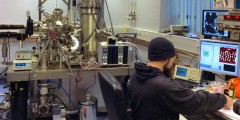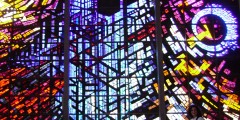Reviewing the evidence on transparency in science: a response to Lewandowsky & Bishop.
March 30, 2016
Co-authors: Warren Pearce, Sarah Hartley & Brigitte Nerlich. In January, Nature published a Comment piece by Lewandowsky and Bishop entitled “Don’t let transparency damage science“. The authors argued that some of the “measures that can improve science — shared data, post-publication peer review and public engagement on social media — can be turned against scientists”. …
The impact of impact
April 25, 2014
This article by Ernesto Priego first appeared in Research Information and is reposted here with the author’s permission. It is based on a presentation at the UKSG conference (Connecting the Knowledge Community) earlier this month. Ernesto also maintains a blog on Digital Scholarship. The article complements an old blog post of mine on impact, but …
Bring on the Yawns: Time to Expose Science’s “Dirty Little Secret”
May 22, 2013
Guest post by visiting fellow, Jeff Tamblyn, film maker and director of Kansas vs. Darwin. As a visiting fellow in the “Making Science Public” project, I’ve had a great first week at the University of Nottingham, filled by conversations with social science scholars and capped off with the events of May Fest – a day in …
Debating empty chairs: creationism, climate and public engagement
May 17, 2013
This week, Making Science Public has been very proud to welcome US film director Jeff Tamblyn during his UK visit. On Wednesday we screened his amazing film, Kansas vs Darwin, a documentary charting the attempts by members of the Kansas School Board to introduce creationism and intelligent design into high school science teaching. The film …
Are they really climate deniers? Closing down debate in science and politics.
March 9, 2013
Just had an interesting back and forth with Vanessa Heggie about ‘what to call climate deniers/sceptics’? At the bottom of her excellent post on ‘how to debate with sceptics’, Vanessa wonders whether ‘denier‘ or ‘sceptic‘ is the right word to use around climate change. This was a handy reminder that, although I read stuff on …
The privatisation of science is not in the public interest
February 25, 2013
This Blog post is a summary and more extended reflection on some thoughts presented as part of the ‘Making Science Public’ launch event. In the afternoon we kick-started a debate about issues related to the privatisation of science with two short talks by Alex Smith (tasked with speaking in favour of the motion as set …
Making the invisible visible: On the meanings of transparency
October 12, 2012
One of the key themes of our ‘Making science public’ research programme is ‘Transparency, expertise and evidence in policymaking’. Recent encounters with various uses of the word ‘transparency’ made me put on my linguistic hat and ask: What does ‘transparency’ actually mean? In the sense of, how was it used in the past and how …








